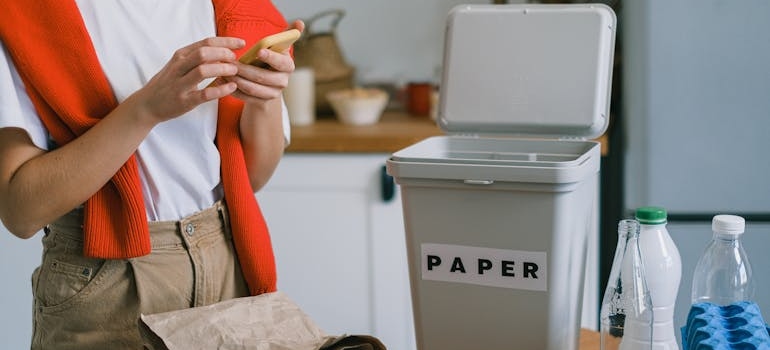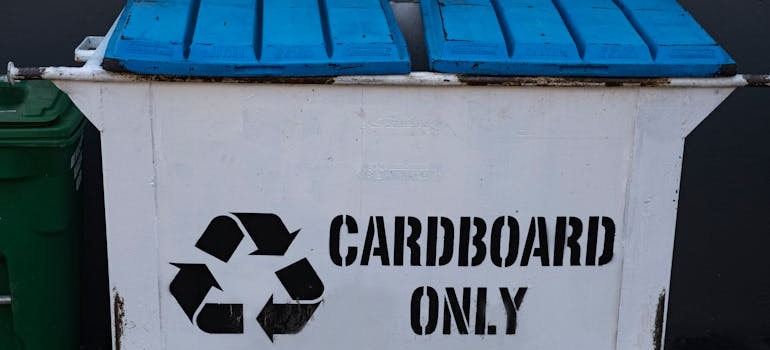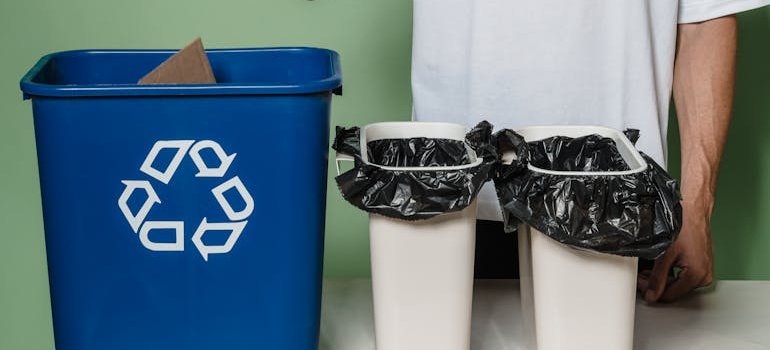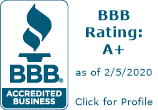Recycling Paper During Your WA Move
Moving within the Seattle metro area brings more than just new beginnings—it often comes with a mountain of paper waste. Between packing materials, old paperwork, and advertisements, the paper quickly piles up, leaving you wondering what to do with it all. Instead of letting it end up in a landfill, recycling paper during your WA move is the best solution. Our eco-conscious movers and packers Seattle trusts have prepared this guide to help you understand the entire process. That’s hardly surprising because Seattle’s green initiatives make it one of the most environmentally aware cities in the country. And recycling plays a major role in keeping that reputation alive. So, knowing what to recycle, where to take it, and how it impacts the environment helps make the entire process smoother.
The Origins of Paper Waste During a Move
Paper accumulates quickly when preparing for a move. Decluttering uncovers piles of old documents, forgotten newspapers, magazines, and packaging. But it’s not just what’s found hidden in drawers—moving itself creates new paper waste. Think of all the cardboard boxes, wrapping paper for fragile items, packing paper, and delivery materials that start showing up.
Also, flyers, advertisements, and documents you no longer need get tossed aside, adding to the pile. Looking around at all the paper scattered through your home might feel overwhelming. But don’t worry. Most of this paper waste can be easily recycled in Seattle.

Key Types of Paper to Recycle
Not everything can go straight into the recycling bin, so knowing what to toss and what to keep aside saves you trouble later. For example, cardboard boxes and packing paper are great candidates for recycling. So are any old newspapers or magazines you don’t plan to take with you. If you find unused flyers, advertisements, or junk mail cluttering your space, recycle them instead of letting them take up the room.
Meanwhile, some items don’t belong in your recycling bin. Shredded paper, for instance, doesn’t get processed properly through curbside services but can be taken to a special drop-off. Items like receipts printed on thermal paper, wax-coated products, or old laminated flyers also need a different method of disposal.
Making Recycling Part of the Move
Seattle’s strong sustainability programs make recycling accessible and straightforward. It’s easy to see how making recycling part of your moving process aligns with local values and helps keep the city green. As you pack, create a space specifically for recyclable paper. It saves time and stress later on, and it keeps things organized as you go. Not only does it cut down on clutter, but it also keeps unnecessary items from ending up in your moving boxes.
Anything that’s already served its purpose should go straight into that recycling space—packing paper, old documents, cardboard, and junk mail included. Taking a moment to sort it all early makes the later stages of the relocation with your Washington movers much smoother—and more cost-effective.
Environmental Impact of Recycling Paper
Seattle residents often take pride in contributing to a clean and green environment. Recycling paper during your WA move offers a simple way to do this. The benefits are far-reaching: it helps conserve trees, cuts energy consumption, and reduces the need for new raw materials.
Recycling also plays a key role in water conservation. For every ton of recycled paper, thousands of gallons of water are saved, meaning your efforts at home extend well beyond just filling your recycling bin. When you keep paper out of landfills, you also prevent the emission of harmful methane gases—a byproduct of decaying paper in landfill environments.
The Consequences of Not Recycling
Ignoring the importance of paper recycling might seem like a minor issue, but it carries several consequences. In Seattle, where recycling compliance is expected, not separating your recyclables can lead to fines. More importantly, it adds unnecessary waste to landfills and undermines the city’s eco-friendly goals.
The landfilled paper contributes to greenhouse gas emissions, worsening climate change. The missed opportunity to recycle also means a higher demand for raw materials like timber, which has a direct impact on forests and ecosystems. It’s not just an environmental setback—it’s a social one.

What Happens to Your Paper After It’s Recycled?
After sending your paper off for recycling, it goes through a transformative process. Once collected, the paper is sent to sorting facilities, where it’s separated by type. It’s then pulped and cleaned to remove inks, adhesives, or other contaminants. The pulp becomes new paper products, helping create everything from cardboard boxes to tissue paper.
Some recycled paper is even used to make eco-friendly packaging materials, which are increasingly in demand. Recycling paper in Seattle doesn’t just keep waste out of landfills—it contributes to the city’s eco-friendly cycle. The paper you recycle today could become a new product that’s ready for reuse within months, closing the loop on sustainable resource use.
Dealing With Sensitive Documents
A common challenge during a business move is managing sensitive documents after your office movers in Seattle handle the rest of your inventory. Old bank statements, business records, and other confidential information shouldn’t just be tossed into the recycling bin. Without proper disposal, these papers could easily fall into the wrong hands. Identity theft and fraud become real concerns when sensitive data gets mishandled.
For these papers, consider shredding them before disposing of them. In Seattle, community shred events happen regularly. Local companies often partner with the city to offer convenient shredding services. It’s a safe and eco-friendly way to get rid of sensitive materials without risking security. After shredding, remember that shredded paper doesn’t belong in your curbside bin. However, composting or taking it to a designated facility ensures it’s dealt with properly.
Timing and Organization: Streamlining Paper Recycling
Recycling as you go keeps the process organized and prevents chaos from taking over. Start sorting your paper as soon as you begin packing. Make a habit of setting aside items that can be recycled. The earlier you start, the less overwhelming it feels later on. Also, before booking your moving services in Seattle, go digital wherever possible.
Opting for digital bills, subscriptions, or e-documents limits the amount of physical paper you handle. This not only reduces clutter but also simplifies organizing important information during the move. Consider creating digital inventory lists for your belongings, which can replace paper checklists and you can easily update.
Switching to digital formats can significantly cut down on unnecessary waste in the long run. Additionally, use digital receipts for purchases and scan important documents instead of storing paper copies, making the entire process more efficient and eco-friendly.
Moving Companies and Their Role in Recycling
If you’re hiring professional movers, some companies in the Seattle area offer eco-friendly moving services. They not only help pack and move your belongings, but many also provide recycling or donation options for materials you don’t need. Asking your moving company ahead of time about their recycling practices can make things easier and help you stick to sustainable habits.
Seattle-based movers are often accustomed to clients who want an eco-friendly approach, so don’t hesitate to explore companies that prioritize green moving practices. Some movers even provide high-quality, reusable cardboard moving boxes in Seattle, made from recycled paper, further reducing waste.

Simple Ways to Reduce Paper Waste Before and After Your Move
Reducing paper waste isn’t just about recycling paper during your WA move—it’s also about prevention. Before your move, make it a priority to cut down on the amount of paper you accumulate. Here are some strategies:
- Switch to paperless billing: If you haven’t already, request that your utility companies and other services send digital versions of your bills. This minimizes the paper clutter that can pile up during your move.
- Unsubscribe from junk mail: Opt out of catalogs, credit card offers, and other unsolicited mail. Doing this in advance will make a noticeable difference as you pack.
- Donate unused items: Sometimes, the best way to recycle is to donate. If you have unused stationery, notebooks, or other paper products, find a local organization or school that can put them to use.
Many people in the Seattle area are familiar with composting, a method that can be just as beneficial as recycling when it comes to paper waste. While not all paper can be composted, certain types, like uncoated, non-glossy paper, can be turned into nutrient-rich compost.
Seattle has an extensive composting program, allowing residents to include paper in their green bins. Items like paper towels, napkins, and food-soiled paper products (like pizza boxes) are ideal for composting. Not only does this divert waste from landfills, but it also creates valuable compost for use in gardens and landscapes across the city.
Paper Recycling Options in the Seattle Area
Seattle’s focus on sustainability means there are many ways to recycle paper during your move. The city provides curbside recycling programs that collect recyclable materials from homes and apartment buildings. Just make sure to follow simple guidelines—flatten your cardboard boxes and bundle loose papers to prevent them from blowing away.
Seattle also has recycling and disposal stations designed to handle large amounts of recyclables, perfect for moving days when the paper piles up. These centers accept everything from cardboard to paper products, and they make dropping off your waste easy. With transfer stations located at North and South Seattle, both are easily accessible for those packing up their homes.
Understanding Seattle’s Recycling Rules
To ensure you’re recycling paper correctly, it’s important to stay up-to-date on Seattle’s recycling guidelines. The city regularly updates its policies, so checking the Seattle Public Utilities website or contacting your local waste management provider can help you stay informed.
Correctly recycling paper during your WA move avoids contamination, which can cause entire loads of recyclables to be rejected and sent to the landfill. This happens when non-recyclable materials are mixed in, such as food-soiled paper or items like laminated paper that cannot be processed. Following local guidelines ensures that your recycling efforts make the maximum impact.

Schools and Community Organizations: A Resource for Extra Paper
If you’re feeling overwhelmed by the sheer amount of paper materials left over after your move with your West Seattle movers, consider reaching out to local schools or community groups. Many of these organizations are happy to take your old books, magazines, or even excess paper materials for projects and educational purposes. Seattle is home to many non-profit organizations that accept donations of paper-based materials for reuse. When you donate, you contribute to the community while reducing the need for new paper products.
Transform Your Move With a Green Mindset
Moving doesn’t have to mean mountains of waste and environmental guilt. When you make paper recycling a core part of your moving process, you contribute to a cleaner Seattle and feel good knowing you’re doing your part. From packing materials to old documents, recycling paper offers a way to reduce clutter and benefit the environment at the same time.
With so many easy recycling options in Seattle, recycling paper during a move has never been more convenient. Remember to take advantage of local resources like transfer stations, curbside services, and shredding events to manage your paper waste efficiently. So, as you settle into your new home, let your recycling habits carry over into your daily life.
Every little bit helps—especially in a city like Seattle, where the community takes environmental action seriously. Doing something simple as recycling paper during your WA move makes a lasting impact on the planet and inspires others to do the same. So, as you prepare to start fresh, make sure you leave behind more than just boxes. So, go ahead and leave a positive footprint in Seattle by recycling your way to a greener move!
Why Choose Us
History
Hansen Bros. Moving & Storage is locally owned and operated by the same family for four generations, since 1890. We have a well-established reputation for service quality and reliability with a high percentage of repeat household and commercial clients.
Professionalism
We’re a certified ProMover by the American Moving and Storage Association with A+ rating with the Better Business Bureau, voted “Best in Western Washington” in 2009 and from 2011 to 2016 by KING5. Our company is fully licensed and insured and member of WMC and AMSA.
Value
Hansen Bros. Moving & Storage provide free, no-obligation in-home estimate and competitive rates, including low minimum rates for shipments moving under 300 miles. We’ve set a refund policy for unused packing materials and three Puget Sound locations to help clients save on travel fee costs.



